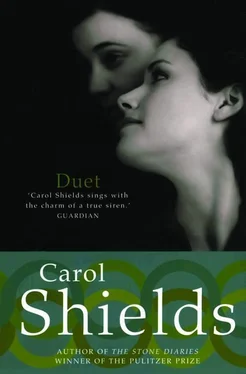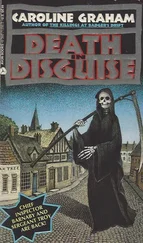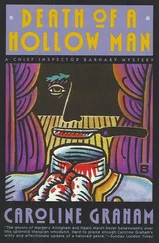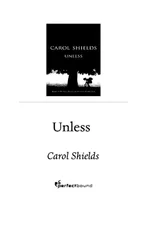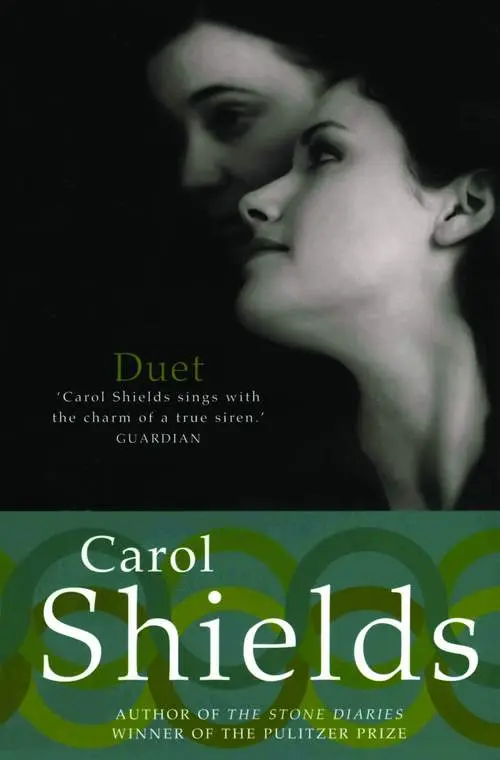

Cover Page
Title Page Duet Carol Shields
Introduction Introduction I’ve always thought of my first two books as ‘companion’ novels, a term I seem to have invented. Small Ceremonies was published in 1976, and a year later, 1977, came The Box Garden. There is no sense of this second book being a sequel to the first, but a number of threads connect them. Above all, they are about two women, Judith and Charleen, who happen to be sisters. The mother of the two women also appears in both novels. Mrs McNinn is an sour, disenfranchised housewife whose only relief is found in the manic redecorating of her small suburban house. Judith, a biographer, is scarcely touched by her mother’s narrowness; Charleen, on the other hand, a poet, has been thwarted by her bitter mother. These are both short novels, and the idea of publishing them together makes sense to me. Each enriches and fills out the other, and together they lead to the sisters’ discovery of what their mother really is; an artist who, like themselves, stumbles toward that recognition. Carol Shields
Judith Judith For Inez 1902-1971
September
October
November
December
January
February
March
April
May
Charleen
Chapter 1
Chapter 2
Chapter 3
Chapter 4
Chapter 5
Chapter 6
Chapter 7
About the Author
The Work of Carol Shields
Copyright
About the Publisher
I’ve always thought of my first two books as ‘companion’ novels, a term I seem to have invented. Small Ceremonies was published in 1976, and a year later, 1977, came The Box Garden. There is no sense of this second book being a sequel to the first, but a number of threads connect them. Above all, they are about two women, Judith and Charleen, who happen to be sisters.
The mother of the two women also appears in both novels. Mrs McNinn is an sour, disenfranchised housewife whose only relief is found in the manic redecorating of her small suburban house. Judith, a biographer, is scarcely touched by her mother’s narrowness; Charleen, on the other hand, a poet, has been thwarted by her bitter mother.
These are both short novels, and the idea of publishing them together makes sense to me. Each enriches and fills out the other, and together they lead to the sisters’ discovery of what their mother really is; an artist who, like themselves, stumbles toward that recognition.
Carol Shields
For Inez
1902-1971
Sunday night. And the thought strikes me that I ought to be happier than I am.
We have high tea on Sunday, very Englishy, the four of us gathered in the dining ell of our cream-coloured living room at half-past five for cold pressed ham, a platter of tomatoes and sliced radishes. Slivers of hardboiled egg. A plate of pickles.
The salad vegetables vary with the season. In the summer they’re larger and more varied, cut into thick peasant slices and drenched with vinegar and oil. And in the winter, in the pale Ontario winter, they are thin, watery, and tasteless, though their exotic pallor gives them a patrician presence. Now, since it is September, we are eating tomatoes from our own suburban garden, brilliant red under a scatter of parsley. Delicious, we all agree.
‘Don’t we have any mustard?’ my husband Martin asks. He is an affectionate and forgetful man, and on weekends made awkward by leisure.
‘We’re all out,’ I tell him, ‘but there’s chutney. And a little of that green relish.’
‘Never mind, Judith. It doesn’t matter.’
‘I’ll get the chutney for you,’ Meredith offers.
‘No, really. It doesn’t matter.’
‘Well, I’d like some,’ Richard says.
‘In that case you can just go and get it yourself,’ Meredith tells him. She is sixteen; he is twelve. The bitterness between them is variable but always present.
Meredith makes a sweep for the basket in the middle of the table. ‘Oh,’ she says happily, ‘fresh rolls.’
‘I like garlic bread better,’ Richard says. He is sour with love and cannot, will not, be civil.
‘We had that last Sunday,’ Meredith says, helping herself to butter. Always methodical, she keeps track of small ceremonies.
For us, Sunday high tea is a fairly recent ceremony, a ritual brought back from England where we spent Martin’s sabbatical year. We are infected, all four of us, with a surrealistic nostalgia for our cold, filthy flat in Birmingham, actually homesick for fog and made edgy by the thought of swerving red buses.
And high tea. A strange hybrid meal, a curiosity at first, it was what we were most often invited out to during our year in England. We visited Martin’s colleagues far out in the endless bricked-up suburbs, and drank cups and cups of milky tea and ate ham and cold beef, so thin on the platter it looked almost spiritual. The chirpy wives and their tranquil pipe-sucking husbands, acting out of some irrational good will, drew us into cozy sitting rooms hung with water colours, rows of Penguins framing the gasfires, night pressing in at the windows, so that snugness made us peaceful and generous. Always afterward, driving back to the flat in our little green Austin, we spoke to each other with unaccustomed charity, Martin humming and Meredith exclaiming again and again from the back seat how lovely the Blackstones were and wasn’t she, Mrs Blackstone, a pet.
So we carry on the high tea ritual. But we’ve never managed to capture that essential shut-in coziness, that safe-from-the-storm solidarity. We fly off in midair. Our house, perhaps, is too open, too airy, and then again we are not the same people we were then; but still we persist.
After lemon cake and ice cream, we move into the family room to watch television. September is the real beginning of the year; even the media know, for the new fall television series are beginning this week.
I know it is the beginning because I feel the wall of energy, which I have allowed to soften with the mercury, toughen up. Get moving, Judith, it says. Martin knows it. All children know it. The first of January is bogus, frosty hung-over weather, a red herring in mindless snow. Winter is the middle of the year; spring the finale, and summer is free; in this climate, at least, summer is a special dispensation, a wave of weather, timeless and tax-free, when heat piles up in corners, sending us sandalled and half-bare to improbable beaches.
September is the real beginning and, settling into our favourite places, Martin and I on the sofa, Meredith in the old yellow chair and Richard stretched on the rug, we sit back to see what’s new.
Six-thirty. A nature program is beginning, something called ‘This Feathered World.’ The life cycle of a bird is painstakingly described; eggs crack open emitting wet, untidy wings and feet; background music swells. There are fantastic migrations and speeds beyond imagining. Nesting and courtship practices are performed. Two storks are seen clacking their beaks together, bang, slash, bang, deranged in their private frenzy. Richard wants to know what they are doing.
‘Courting.’ Martin explains shortly.
Читать дальше
